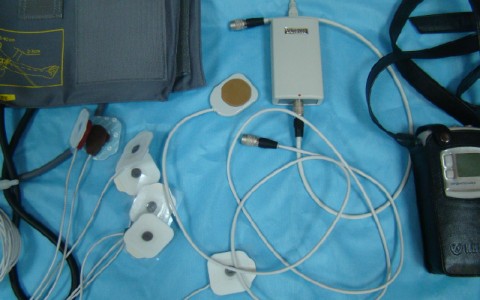
24-Hour Holter Monitoring
Uses for Holter monitoring
An EKG is a medical test that’s used to measure your heart rate and rhythm. It’s also used to look for other abnormalities that may affect normal heart function. During an EKG, electrodes are placed on your chest to check your heart’s rhythm. You may experience heart rhythm irregularities that don’t show up at the time the EKG is done because you’re only hooked up to the machine for a very brief amount of time.
Abnormal heart rhythms and other types of cardiac symptoms can come and go. Monitoring for a longer period of time is necessary to record these events. The 24-hour Holter monitoring lets your doctor see how your heart functions on a long-term basis, it reveals almost all possible disturbances in the work of the cardiovascular system during the day and helps more accurately diagnose the problem and prescribe more effective treatment.
Why might you need a 24-hour ECG Holter monitoring?
- You may have had symptoms such as:
• palpitations (the feeling of strong or fast heart beats),
• dizziness,
• chest pain
• shortness of breath.
How it works
A Holter monitor is a small, battery-powered medical device that measures your heart’s activity. Several leads are attached to the monitor. The leads connect to electrodes that are placed on the skin of your chest with a glue-like gel.
You’re encouraged to participate in your normal activities during the 24-hour Holter test. You’ll be directed to record your activities in a notebook. This helps your doctor determine if changes in heart activity are related to your behaviors and movements.
A 24-hour Holter monitor test is painless. However, be sure to record any chest pain, rapid heartbeat, or other cardiac symptoms you have during the testing period.
After wearing the device for 24 hours you need to come to the clinic to remove the monitor.
Medical tests. Diagnostics in Moscow
-
24-Hour Holter Monitoring
The 24-hour Holter monitoring lets your doctor see how your heart functions on a long-term basis.
